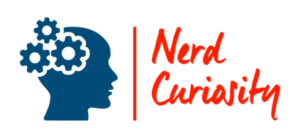Navigating the nuances of a career can often feel like a quest for happiness. As a product manager, you’re tasked with steering the complex ship of product development—from ideation to launch. It’s a role that blends creativity with technical expertise and deep market understanding. Yet, despite the importance and dynamism of this position, one question lingers: does the journey lead to professional fulfillment?

Yes, product managers, broadly, experience a high degree of job satisfaction.
Embarking on the rest of this article, you’ll gain insights into the factors that contribute to product managers’ fulfillment, from salary and benefits to the satisfaction derived from launching successful products. We’ll explore what drives product managers day-to-day, how the various aspects of their role impact their overall job contentment, and what future prospects look like in this dynamic field.
Understanding the Role

When you embark on a journey in product management, you’re committing to a multifaceted role that intertwines various business objectives and developmental processes. You’ll find yourself at the crossroads where vision and execution meet.
Key Responsibilities
In the realm of product management, your responsibilities are diverse. You are tasked with defining the strategy and roadmap for your product or product line, akin to being the CEO of that product. This involves identifying customer needs and translating them into features, thus shaping the product’s future. You’re the linchpin that coordinates with a cross-functional team—including engineers, designers, marketers, and sales personnel—to ensure that the product’s vision is realized.
- Strategy Development: Crafting long-term vision and short-term goals
- Feature Prioritization: Deciding which features to build to maximize value
- Roadmap Planning: Setting the timeline for product development
- Cross-functional Leadership: Collaborating with diverse teams
- Market Analysis: Understanding the competitive landscape
Product Management vs. Other Roles
You may wonder how product management compares to other roles within an organization. Unlike roles that may focus on a single aspect of a product, your role requires a holistic approach. Business objectives guide your decisions, and effectiveness is gauged on your ability to lead without direct authority. Your impact is measured by the success of the product in the market and the value it brings to customers.
- CEO of the Product: Responsible for the product’s success and vision
- Project Managers: Focus primarily on execution and timelines
- Marketing: Concentrates on promoting and selling the product
- Development Team: Builds the product according to specifications
In mastering these responsibilities, you ensure that every release brings you closer to the ultimate goal: creating a product that resonates with users and stands out in the marketplace.
Career Path and Progression

In your journey as a product manager, understanding the career ladder and educational requisites is crucial for growth.
From Junior to Senior
Your ascent from a junior product manager to a senior role hinges on gaining experience and demonstrating efficacy in product development. In the early stages, you’re tasked with learning the ropes and assisting with market research, feature specifications, and sometimes customer engagement. As you take on more responsibility, your title might shift from Junior to Product Manager, and eventually to Senior Product Manager. At this level, strategic thinking and leadership are key, as you will likely oversee multiple product lines and guide junior team members.
Transitioning from senior positions may lead you to roles such as Director of Product, where overarching product strategy for the company is in your hands. For the ambitious and skilled, the path can lead all the way up to a C-suite position like Chief Product Officer (CPO) or even CEO, with a strong focus on not just product strategy but also business vision and direction.
Educational Requirements
The educational journey often begins with a bachelor’s degree in a relevant field such as business, engineering, or computer science. Yet, for those eyeing the top tiers of management, additional education like an MBA could prove beneficial. Additionally, continual learning through workshops, certifications, and other industry-related education helps keep your skills sharp and ensures you’re conversant with cutting-edge practices in product management.
Academic institutions and online platforms offer a slew of certifications tailored to your career advancement. Deepening your understanding of user experience, analytics, and agile methodologies are just a few educational pursuits that can bolster your professional development.
Daily Life and Job Satisfaction

Your satisfaction as a product manager is intertwined with the daily activities you perform and the environment in which you work. The way you manage your workload, collaborate with your team, and balance creativity versus execution can significantly influence how fulfilled you feel in your role.
Managing Workload and Priorities
Managing a backlog and determining what to prioritize can be a constant challenge. You’re tasked with aligning tasks with strategic goals and making critical decisions that affect the product’s trajectory. Efficiently handling these responsibilities often leads to higher job satisfaction. On a 5-point happiness scale, most product managers rank their happiness above average.
Collaboration and Impact
Working closely with cross-functional teams is a staple in your day. Positive interactions with design, engineering, and other units can leave you feeling more connected and impactful. Your role in fostering a collaborative environment is paramount, as is recognizing the collective achievements through feedback. It’s the glue holding together various facets of product development.
Balancing Creativity and Execution
Your role requires a delicate balance between creativity and practical execution. It offers you the chance to design innovative solutions, while also ensuring that the execution phase proceeds without hiccups. This duality can be highly satisfying, especially when the creative design meets user needs and company goals, reflected in the job satisfaction rates reported by product managers.
Skills and Tools of Effective Product Managers

As you delve into product management, know that your success hinges not just on what you do, but on how you do it. Let’s explore the core skills and tools that set effective product managers apart.
Essential Skills for Success
To thrive as a product manager, you need a multifaceted skill set that ranges from communication prowess to keen decision-making. John Cutler emphasizes the importance of fluency in customer conversations, enabling you not just to listen, but to translate needs into actionable insights. On the other hand, Martin Eriksson suggests that balancing technology, customer, and marketing perspectives is crucial—like a Venn diagram where the best products reside at the intersection. Your experience counts, but so does your ability to pivot and adapt to new challenges.
- Communication: Clear articulation of your vision to bridge gaps between various stakeholders
- Customer empathy: Dig deep to understand the user’s journey and pain points
- Analytical thinking: Make data-driven decisions without paralysis by analysis
- Leadership: Foster a collaborative environment without direct authority
- Prioritization: Master the art of focusing on what truly matters for impact
Popular Tools and Frameworks
In the realm of product management, the tools you use can streamline your process and sharpen your effectiveness. Kanban boards are a prime example, offering a visual workflow that assists in managing tasks and priorities. They are critical in agile environments, driving efficiency and adaptability. Additionally, frameworks that enable rapid iteration and feedback loops can prove indispensable. Tools like Aha! for road-mapping or JIRA for issue tracking equip you to stay on top of the development cycle and ensure alignment with your strategic goals.
- Kanban boards: Visualize workflow and maximize efficiency
- Analytics platforms: Garner insights to guide your product strategy
- Road-mapping software: Align your team on the path ahead with clarity
- Collaboration tools: Facilitate seamless communication across teams
Compensation and Growth Opportunities

In the dynamic field of product management, your compensation and potential for growth are strongly influenced by various factors, including your experience and the business model of the organization you’re with.
Salary Expectations
When considering a career in product management, you should understand your salary prospects are promising. Average earnings for product managers circumnavigate around $113,446 per year. You can find more precise figures across tech companies, as they are known for offering competitive packages.
Factors Affecting Earnings
Your earnings can go beyond the base salary, affected by the structure of the enterprise you’re in. Incentives like stock options, bonuses, and the power to negotiate can increase your overall compensation, especially if you’re in a B2B or B2C organization where success impacts earnings directly.
Senior Management Opportunities
As you climb the ladder, you’ll find that senior roles, such as VP of Product, come with significantly higher financial rewards—sometimes north of $331,301 a year. Advancing to top executive roles like COO or CFO within an enterprise will further augment your compensation and underscore your career success.
Conclusion

Product management can indeed be a rigorous career, especially as you transition from junior to more senior roles. You might find increased challenges as responsibilities grow. Job satisfaction seems to hinge significantly on a spectrum of factors, from team dynamics, the impact of one’s work, to professional growth opportunities.
Encouragingly, studies suggest that most product managers report a high level of job happiness. On a scale from one to five, the average happiness score for product managers sits at 3.8. It’s also noteworthy that fewer than 10% rate their job happiness as low as one or two out of five.
Salaries also rise with experience; UserGuiding highlights that the average salary for product managers with one to three years of experience is significant, and tends to increase over time. Job satisfaction likewise correlates highly with earning potential and job openings.
Ultimately, your experience in product management will be personal and nuanced. Your job satisfaction will be colored by your individual circumstances, professional environment, and inherent career motivations. While the pathway may be strenuous at times, you are likely to find a fulfilling career journey with ample room for satisfaction and growth.
